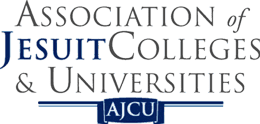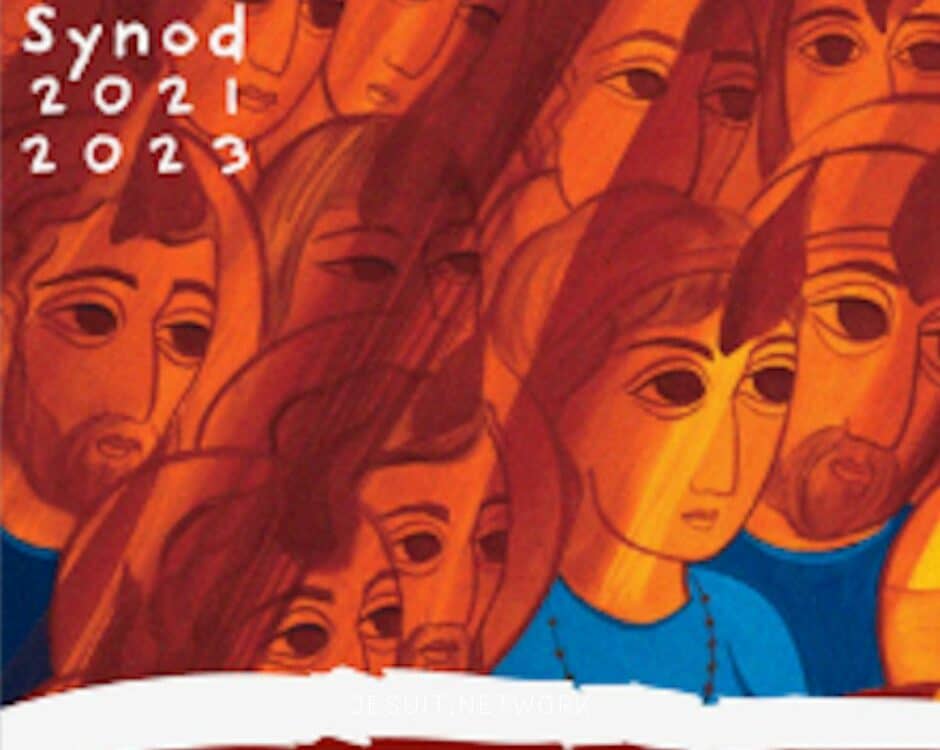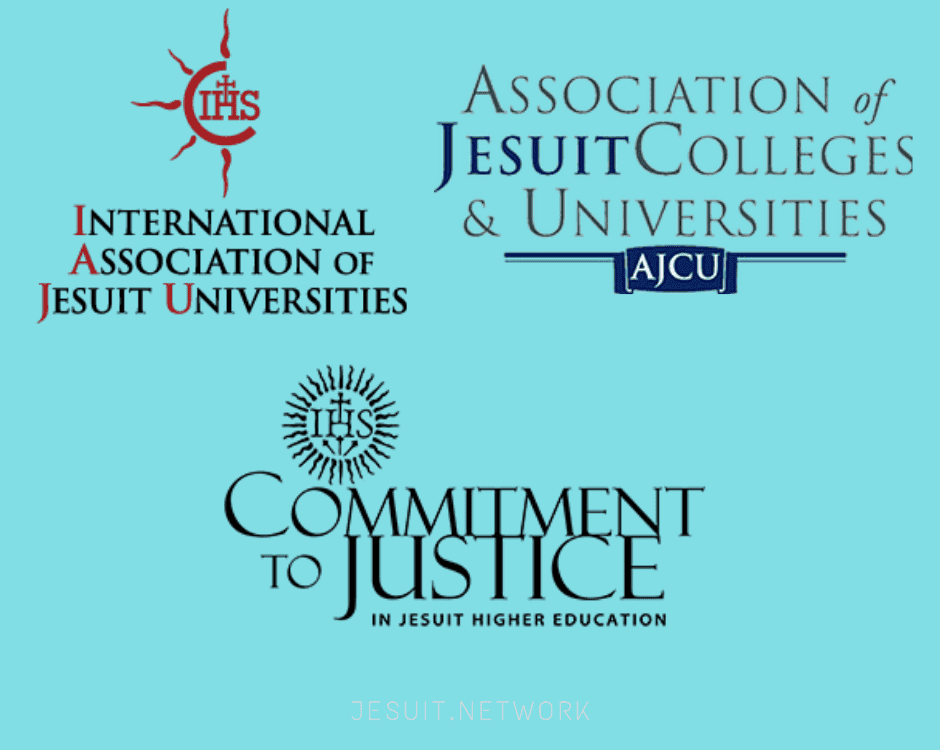This website uses cookies so that we can provide you with the best user experience possible. Cookie information is stored in your browser and performs functions such as recognising you when you return to our website and helping our team to understand which sections of the website you find most interesting and useful.
Ignatian Legacy Fellows, Rewiring or Retiring.

At a certain point in life, many people ask themselves a version of this question: “What will my legacy be?” The answers are many and varied, but for some, the answers take time. Further discovery is required.
This is where the Ignatian Legacy Fellows (ILF) program has come into play for many people since September of 2019. Jason Zenk is one of them.

“Anybody interested in the ILF program should consider it because it will change your life, unequivocally,” says Zenk, a participant in the ILF’s second cohort in 2022. “No one in our cohort left without a concrete answer to what they’d hoped for. And every one of us said it changed our life.”

Through residencies at Boston College, Georgetown University and Santa Clara University, the ILF is a year-long program that includes personal reflection, guided meditation, spiritual readings and discussion, immersive travel and volunteer service. Most participants are high-level executives and organizational leaders in their 60s or 70s, either retired or nearing retirement. But the program has welcomed many people in their 50s, including Jason Zenk, who graduated from Bellarmine High School in Tacoma, Wash., and later Santa Clara University, followed by graduate school at Georgetown University. He now lives in Hawaii.
Participants, known as Ignatian Legacy Fellows, also choose to augment their year of reflection by making visits to Jesuit apostolates around the world. Those destinations have included Sapa Un Academy at St. Francis Indian Mission in the Black Hills of South Dakota, and Jesuit works in the heart of Nairobi, Kenya. The Fellows have walked the hallowed halls of St. Peter’s Basilica in Rome and visited the caves at Manresa, where St. Ignatius prayed. Many have reported coming away from their year-long fellowships with treasured friendships, renewed or refined faith, and, in some cases, a call to action and a newly discovered mission and purpose.
“ILF offers a community in which to discover your vocation in the second half of life, to lean into your deepest desires and to embrace the Jesuit mission and spirituality around the world,” says Mariann McCorkle, the ILF’s director.
Zenk was moved enough by his cohort’s May 2022 visit to a community kitchen near Lima, Peru that he decided to devote his time and resources to a complete overhaul of the facility. With his wife Lisa and her company, GCM Grosvenor, Zenk has raised more than $150,000 for the kitchen, which the cohort named in honor of Fr. Michael Garanzini, SJ, the ILF’s founder and board chair. Father Garanzini is also president of the Association of Jesuit Colleges and Universities (AJCU), and the former president of Loyola University Chicago.

“I told them that the son of a restaurant family could not have a higher honor than having a kitchen with his name on it,” Fr. Garanzini says. “And, as a Jesuit, the honor could not be greater than for a kitchen where everyone being fed is poor. I may ask if I can wait tables.”
Once Zenk and the second cohort announced their desire to help, the people who operate the kitchen had a simple request. The pots they were using to make rice were too big for the cooks to safely handle. They wondered if they could have smaller pots. With that problem solved, they told Zenk they bought food twice a week and did not have enough room in their single refrigerator to keep it fresh. Zenk made sure they got a new freezer. Since they cook with both oil and propane, he also made sure to replace the existing roof with fire-retardant material. He then trained the workers on the use of a fire extinguisher.

Eventually the space was expanded by a third, and all the equipment was replaced. New windows were installed, outdoor stairs were repaired, and in early 2023, a bathroom with a biodegradable toilet was added. Water is an issue in the area, so Zenk commissioned the construction of a fog catcher, a device that collects condensation that can be used to irrigate newly planted fruit and olive trees. Local drinking water, delivered by truck, is not potable and must be boiled before consumption, but water from the fog catcher can be used liberally for plants.
The grand reopening occurred in March 2023, and the kitchen now also serves breakfast, which many kids enjoy on their way to school. Besides feeding more than 100 people per day, Monday through Friday, the Garanzini Kitchen serves as a gathering place for locals, and a community center for meetings.
“They’re learning accounting and how to run a business,” Zenk says of the people who operate the kitchen. “The pride they have is overwhelming.”
Future goals include establishing a baker’s apprenticeship program and increasing agricultural production. Zenk believes the Garanzini Kitchen model can be replicated in other places of need, such as Honduras.
The program is thriving, and ILF applications are being accepted for the third cohort. Through six residencies, Fellows learn the theological and spiritual teachings of St. Ignatius, as well as the scope of the work carried out across the world by the Society of Jesus. They are encouraged to rely on their work experience and wisdom as they are introduced to the issues and concerns of various faith-based leaders and their programs. All of it helps participants answer that big personal legacy question, but more specifically the Ignatian question of: “How, in the third chapter of my life, can I use my gifts in service to others?”
Past Fellows have included C-suite executives, lifelong volunteers and many people in between. Alumni of Jesuit schools are prevalent, but the ILF is open to people of all faith traditions. Fees total $50,000 for the program, which includes all hotels, meals and course materials. Fellows pay their own airfare to destinations, and partial scholarships are available. For the first time in ILF history, subsequent fellows will visit a project of their predecessors—the Garanzini Kitchen in Pamplona, Peru—and who knows what might come of that. That will give them a lot of pride to know it’s a product of a previous cohort,” Zenk says.
Fellows are getting out into the world in the company of like-minded people interested in growth, faith and the opportunity to use their gifts to make an impact. Walking with the excluded, he points out, is an apostolic priority of the Society of Jesus.

“The endgame of the ILF program is helping people put their experience and talents in service to others,” Zenk says. “I don’t think you can read about things like this and fully understand them. You can’t do this from Chicago. You have to go to the places and be immersed in them.”
To that end, Fellows in the ILF program will continue to visit Ignatian sites around the world, but McCorkle says the plan is to expand the program into a global operation with participation from many countries.
“It is a movement to embrace this dynamic stage of life in a community that truly sees each individual and invites each person to grow,” she says.
Learn More about the Ignatian Legacy Fellows Program (ILF)





